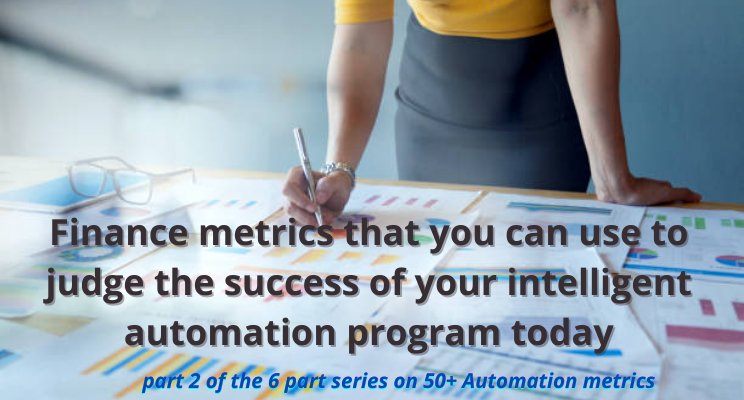I’ve met 100+ RPA developers but these are the 15 signs of an ‘exceptional’ RPA developer!
There are ‘so called’ paper certified RPA developers, there are citizen developers and then there are real RPA developers.
Whilst the Head of Intelligent Automation is a keystone in your Intelligent Automation program; your RPA developers are its building blocks for success. Get this role right and you have the foundations you need to succeed; get this role wrong and you have built your intelligent automation foundations on sand.
Below we outline the skills and attributes needed in your RPA developer roles if they are to add bucket loads of value. Remember your organisation needs to determine which unique set of characteristics are most important for your strategy and business.
1. Strategic yet tactical view. Every employee in every business needs to understand that they exist to deliver business outcomes. They are not employed to ‘do coding’, ‘do marketing’, or indeed ‘do RPA’, they are there to deliver value that is aligned to organisational objectives. Too often developers have fallen in love with their code forgetting that they exist to deliver strategic business outcomes (i.e. profit from an activity or product for which customers are willing to pay) by using RPA to deliver upon tactical business actions (e.g. RPA coding to reduce waste, drive efficiency, reduce risk, increase staff retention by automating mundane tasks).
“Great developers are pragmatic, comfortable with compromise, and focused on the objective. They understand that they are there to solve problems and deliver outcomes.”
Paul Arnold, Head of Product and Development at Cortex Intelligent Automation
2. Curious, adaptable and excited by change. Developers need to be adaptable and willing to change often. This change may involve moving between processes or indeed learning new parts of the business e.g. finance, HR, customer service operations. Having a curious, ‘willing and eager to always learn’ mindset to try new things is as key as possessing the diligence and patience to get the job in hand completed.
If your developer is not excited about, and holding thought leadership, in existing and emerging technology then, as Jim Collins would say in his excellent book ‘Good to Great’, they are in the wrong seat, on the wrong bus. Hire people who are excited by what new business outcomes can be delivered from new technology; don’t hire people who don’t enjoy using new tech to help solve business problems.
‘The best developers I’ve ever worked with, are those who, when presented with new technology to work with, responded like a kid in a sweet shop. The entire journey from capture to production starts and ends with them, so their enthusiasm will form the foundation of the engagement. I remember sitting in a demo with a developer recently, whose sheer enthusiasm and excitement for what he was about to show me, grabbed my attention by the scruff of the neck and pulled me deep into his demo.’
Edward Halsey, RPA Enterprise Account Manager
3. Excellent communication, interpersonal and influencing skills. Excellent communication, facilitation, and relationship building skills is a must. The ability to communicate verbally in order to elicit or impart information to get their job done is key. A concise, clear and well formed verbal conversation can save hours of typing and days of fixing when something is not understood. Developers need to be able to communicate verbally and articulately in: Agile ceremonies (stand-ups, retros, sprints, refinement sessions); during team meetings, problem solving events or code sharing sessions; with onshore and offshore teams; with SMEs, etc. I highly recommend paired coding as a way of developing understanding and learning through communication (see Richard Sheridan’s excellent book on paired coding, Joy, Inc.).
“RPA or any other automation technology will not provide instant miracles. It’s all about people: developing their skills, creating an automation positive culture, engaging your “customers” in design and implementation. Even though tech can be fast, people and company cultures require more time to evolve.”
Jani Rahja, Head of Intelligent Automation at Posti Group Oyj
4. Coding and logical reasoning skills: There are 3 types of developer; citizen developers (i.e. a domain expert or subject matter expert who is not a typical IT user); RPA developers (experienced and or certified in one or more RPA tool) and programmers (experienced is using one or more programming languages such as C#, VBA, python, etc). Whilst much is made of low-code; no-code tools and the increasing need NOT to have coding skills; organisations quickly run out of run way when it comes to completing the most simple of automation through click, point and record RPA platforms.
“Having a programmer is key to a successful digital transformation program. Programmers will allow your teams to take full advantage of off-the-shelf tools and will pave a road for highly customised in-house tools. Having a programmer on your team, or as a consultant, will significantly lower the overall cost and will improve the effectiveness of company-wide RPA efforts.”
William Roseberry, Owner of RoseberryPi LLC
In order to piece together a puzzle you need to follow logical steps. The ability to break business problems into coding or sequential visual flows involves logical thinking that calls for structure, for relationships between facts, and for chains of reasoning that make sense. If you don’t possess a logical and ordered mindset (think Insights profile green and blue) then it is unlikely you will be able to become an excellent citizen developer, or a programmer.
“You don’t need to have actual programming skills if you want to become an RPA developer. However, if you want to be better than average in this field, you need to be able to think logically – analyse, reason and deduct – and programming skills help develop this mindset.”
Jan Mastalski, Lead RPA Developer at innogy
5. Copy writing skills: The ability to communicate through documentation is a key part of any RPA role. Being able to develop documents that clearly and succinctly communicate an intended message is a key part of any developers role (e.g. solution design documents; test plans; process design instructions; DR/BCP plans; emails to managers or SMEs; annotations within code that others can follow; process instruction documents; etc). Copy writing skills are essential in order to develop the skills necessary to communicate the intended message effectively.
6. Empathy. Automations should not be designed for robots, they should be designed for people. There is no use producing the very best technical solution if the end user cannot work with it. Designing for the digital age should involve the end customer or user. The end user needs to have an excellent robot – person experience or they will resist engaging with what you are trying to achieve. Understanding people, the necessity of excellent employee (EX) and customer experience (CX) and then translating that into exceptions user experiences (UX) is key to digital success. Design thinking can help developers understand their customers but emotional intelligence and genuine human empathy should be inbuilt.
“Great developers love the customer, poor developers love the code and the tools”
Paul Arnold, Head of Product and Development at Cortex Intelligent Automation
7. Excel and Visual Basic for Applications (VBA). Excel is ubiquitous. It is used in finance, HR, customer service, digital marketing, and many more business areas. Excel is used in nearly every industry you can think of. Combing the data manipulation capabilities of excel using VBA with RPA makes for a far greater range of easily winnable, immediately available and valuable automations than anything else at the start of your automation journey.
8. High attention to detail Unit, automated integration, quality assurance and functional testing are required in every automation instance. If your developers vomit out poorly tested automations, not only will your program and teams reputation suffer; the return from your program most certainly will too. Untested code results in data errors, broken processes and large quantities of expensive recursive testing after your program has gone live. This wastes time when your developers should be focused on delivering wave after wave of new value instead.
“When it comes to code development, the devil is even more in the details. Good developers must optimise code performance and resilience “by design”. It is crucial to ensure that developers build highly maintainable and expandable bots, and not just “Toy” bots.”
Ralph Aboujaoude Diaz, Director, Core Tech
9. Can do, positive attitude possessing high accountability for results. You can’t train attitude. No one should need to be motivated by their manager to do their job. Individuals should hold themselves accountable and responsible for delivering excellent business outcomes. Inevitably they will be hurdles in any RPA program. Having positive people in your team will help over the bumps in the road that lay ahead. Exceptional coders must be problem solvers; they don’t wait for instructions, if they own it they build it and they support it to the best of their ability because they want to make a difference.
10. Agile and/or project management skills (e.g. Scrum Master, PMP, PRINCE2). In a fast-paced digital world, more and more firms are using Agile to deliver value to their customers faster. Developers with Agile Scrum skills and Agile mindset will help you ship wave after wave of value to your customers. If your team does not work and deliver in an Agile fashion, then you may never make a return from your investment.
“Agile development is a perfect fit for RPA. Developers need to understand a process, take it apart and find the simplest most value add section of that process. Then deliver it quickly, constantly collaborate with the process SME and demo their work to get feedback. This will ensure the process is fit for use and helps ensure the SME is engaged throughout the development cycle.”
Matthew Coffey – RPA Delivery Lead, Pearson
11. Organised and willing to document. Experience with all aspects of Governance controls, including reporting and metrics, RAID management, impediment tracking, financial management, and working and steering groups
12. Transparent and willing to share. Some of the very best RPA developers can be some of the worst team members. Skilled developers with multiple years’ experience are few and far between. Therefore, their openness and willingness to both document and share that knowledge with their colleagues is key in growing your team’s collective capability.
“The most important output of any great developer is more great developers. Always be learning, always be teaching.”
Paul Arnold, Head of Product and Development at Cortex Intelligent Automation
13. Data and process analytical driven. RPA enables the writing of data points that can provide valuable process analytics (e.g. process exceptions, process time, cycle time, wait time, takt time etc). By redesigning processes for optimal digital flow, a business can save large quantities of time, which may then result in monetary savings. Deriving new and interesting process analytics can lead to new insights which lead to more efficient ways of working. Developers must understand data, or more importantly, they must understand the power of data.
14. Machine learning and artificial intelligence. Developers who not only understand the power of data but who can also manipulate it to derive data driven decisions are like hen’s teeth i.e. rare to non-existent. Whilst RPA is excellent for automating routine, standard, data driven processes or tasks it is not capable of doing more complex cognitive tasks such as document scanning or higher-level decision making. RPA is one tool in an intelligent automation digital transformation tool kit. To create a true digital workforce, you need to have the same capabilities as a human (i.e. acting, thinking, analysing). Without cognitive and analytical capability, RPA is a little more than a macro, with limited use. Therefore, you need intelligent automation developers who can also use, combine, build or code other intelligent tools to maximise business outcomes (e.g. OCR, chat-bots, etc.).
15. Scale thinkers. Developers need to think about tomorrow and not just solve problems for today. Automation processes which require building code that enables multiple robots to run sequentially is very, very different to building a ‘one process, one robot’ code model. Developers must code for scale. They must build components that can be ran by multiple robots. Components must be built in way that they can be used in as many different process structures as practicable. They must also be as easy to maintain as possible, be easy to discard and simple to pick up again to build out new value.
If you don’t hire the right RPA developer and decide to ‘make do’, your RPA journey is almost certainly over before it has begun. Get that decision right and you are set for an exciting and rewarding journey ahead. Remember, great developers also need clear goals, access to supporting tool and resources, and lots of ongoing training and coaching to remain successful over the long term.
What do you consider to be the most important skills and attributes of an exceptional RPA developer?
If you like this article then you may find these useful too.
- 8 questions to ask before you implement RPA.
- 14 rules for Robotic Process Automation (RPA) and Intelligent Automation (AI) success
- Behaviours of an Agile Developer
- Behavioural traits of an Agile Developer
- If you are not willing to go all in, then don’t put on your RPA swimsuit.
- The biggest lie told to RPA customers – 50 robots equals success
- 40 essential selection criteria to choose an RPA platform
- The A-Z of RPA, AI and Digital Transformation
- 9 Key Roles in your Robotic Process Automation Centre of Expertise
If this could benefit someone else tag them and share this.
Free to reuse: We are a community of RPA and Intelligent Automation experts with years of real world experience. We have stories to tell and the scars to show for it. We share our collective wisdom for free to simply provide as much value as we can to you. Therefore, if you want to post this article on your LinkedIn page then please feel free to do so. The more information we share within the RPA community the more likely businesses are to succeed with this excellent technology.
Further Help: If I can help you in any way please do reach out.
Note: The views expressed above are my views and not those of my employer or the employers of the contributors.










Leave a Reply